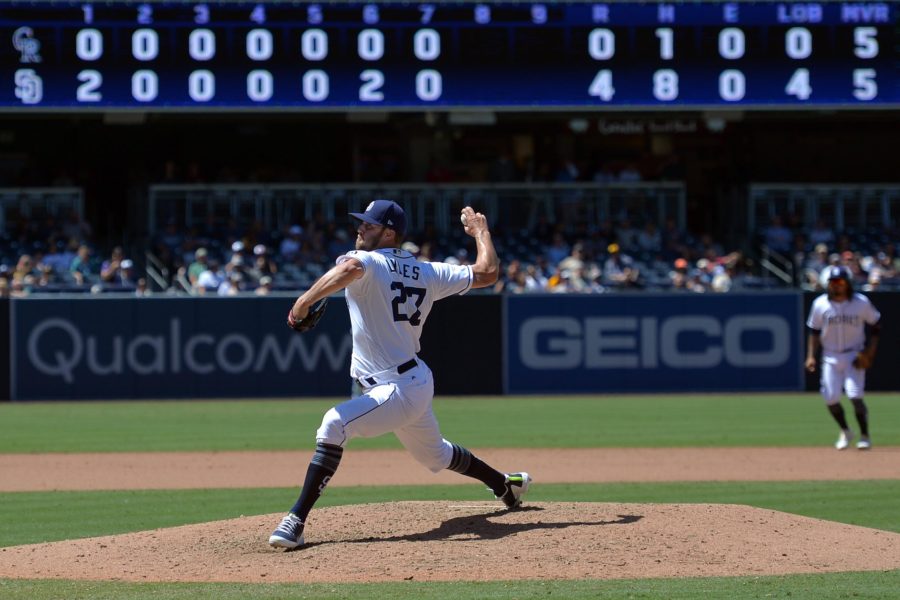Imagine that sports gambling was already legal in Colorado. I would need to issue the following apology letter:
“I’m really sorry. I made a prediction. You believed that prediction because you trust my opinion. You took my opinion down to Double Barrel Or Nothin’ (the Shotgun Willie’s Sports Book). You lost.
In your mind. I lost you that money and now you’re furious.
I don’t blame you. I thought that the Rockies could beat Jordan Lyles on Tuesday because I saw how bad Lyles could be when he pitched for the Rockies. How was I supposed to know that he would throw a perfect game through seven innings?
That’s why I’m apologizing.”
* * * * *
The Supreme Court on Monday overturned a federal ban on sports gambling, which means that all of the illegal sports betting that’s been going on for years can come out into the light. This is an end to shady offshore phone calls or frantic trips to Vegas. Now we will eventually play almost anywhere.
This scenario of blaming the sports predictor is going to start playing out around the country—more openly. Big-name sports reporters, like the Colorado Springs Gazette’s Paul Klee, have already talked about times they’ve been harassed for losing other people’s money based on a prediction.
And now, the outrage from losing money can be upfront, specific and kind of scary.
The Jordan Lyles scenario was just one thing a prediction-maker would have to apologize for this week. There was much misguided hope that the Nuggets might win the NBA Draft lottery (at 200/1 odds) that everyone tuned in. The buzz made me wonder if the long shot could lead to a serendipitous moment worth betting on, even though everyone knew the odds.
The Nuggets lost the draft lottery, as expected — and as the math dictated.
Any rationale for betting on the Nuggets to win the lottery seems silly after the fact. We can’t come up with a formula to predict sports, so we start believing in superstitions and luck.
Sports gambling is a losing fight. To gamble on sports, you must be a sports fan, which causes you to be emotionally invested before you begin. The smart gamblers play the stock market. The sentimental ones play the sports book.
This emotional investment means that you can’t rationally bet on the Cleveland Cavaliers because you have an opinion on LeBron James. You lose money on the Super Bowl because of the shadow Bill Belichick casts everywhere. You hear the tide of people saying the Houston Rockets have already lost the series against the Golden State Warriors and light your money on fire before Game 2 of the Western Conference Finals.
This sports gambling thing is a tough business, and we’re all the fools who will lose money to it.
* * * * *
A lot of sports gambling is about having control over your emotions. On a random Thursday, you can invest yourself in an American League baseball game between the Detroit Tigers and Seattle Mariners by putting some money on the game.
You can negate the heartache of your team losing by making the “rational” decision to bet against them.
You can even try to claim ownership of a team by placing a bet on them to win a championship.
It really is more about what you invest, rather than how much you invest. But it can cost you big-time. When it goes south, that’s where the sports prediction makers need to worry.
Prediction making is a staple of modern sports coverage. Radio, TV and internet personalities are always making guesses. Sometimes they throw out a thought to be contrarian. Often times they believe whatever they’re saying. That doesn’t make it true.
When some guy who writes online makes a dumb prediction, how much weight are you going to put behind that?
Not much, until they label themselves a gambling expert—like we see with Fantasy Football. The actual fantasy experts find themselves lumped together with anyone looking for a click.
At a site I used to write for, we were required to write ‘rumor’ articles. These articles were persuasively made up of half-truths about possible trades and gossip. Today, I’m guessing we would be asked to write ‘gambling advice’ articles with little knowledge of what’s likely to happen.
Here are my predictions. I’ll apologize for them now—as none of them are guaranteed.
The Rockies will not make the playoffs this year.
The Avalanche will sign Paul Stastny in free agency.
The Avalanche will win the Central Division in 2018-19.
The CU Buffs will beat Nebraska and finish below .500 in the Pac-12.
Paxton Lynch won’t make the Broncos’ 53-man roster.
The 2018 Broncos will finish 9-7.
Michael Malone will be the first NBA coach fired next season.
The Nuggets will still miss the playoffs.
Just as the Vegas oddsmaker’s job is to make money for the house—it is also the sports predictor’s job. The money they need to make is based on clicks on their site, not accurate gambling advice. With that equation in mind, I’m sure that I would not trust the sports predictors — including me — with my money.
